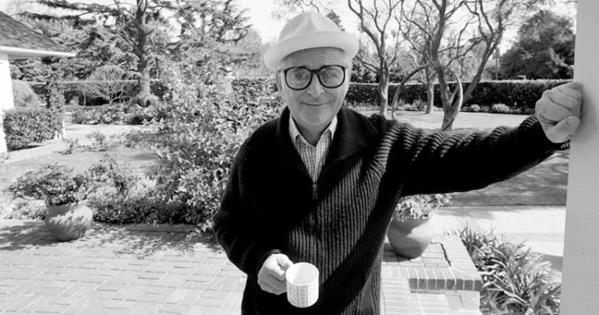Reflections on Norman Lear

The first time I met Norman Lear many years ago, I knew immediately I had found a kindred spirit, 50-something-year age difference and all.
What emerged from a scheduled half-hour meeting in his office was a three-hour passionate conversation about young people and civic engagement, the power of media and storytelling to change hearts and minds, and probably some embarrassing know-it-all tidbits from the naïve, enthusiastic bravado of my 20-something self. The next day, he called to ask me to come to work for him, effective immediately. And thus began my journey learning from—and having adventures with—the greatest master teacher I never expected to have.
In 1999, when President Bill Clinton bestowed upon Norman the nation’s highest cultural honor, the National Medal of the Arts, he summarized Norman’s impact in a beautifully accurate and succinct way: “Norman Lear has held up a mirror to American society and changed the way we look at it.” When I watch his TV shows from the 1970s and '80s today, I am routinely stunned by their contemporary relevance. Through his work—All in the Family, The Jeffersons, and so many other programs and films—America stared its worst, ugliest truths dead in the face: inequality, homophobia, racism, sexism, and a host of other –isms.
But his imprint is also found in quieter, smaller moments—in his empowering of others who share a commitment to social justice and the power of storytelling to pave the path. These are moments that don’t come with awards or public recognition, but they reveal so much more about why and how his legacy continues. His authenticity, generosity of spirit, and quiet mentorship of so many people are qualities and achievements as worth emulating as his award-winning stories.
Many years ago, when I mentioned my fascination with Studs Terkels’ masterpiece 1974 book Working, Norman called Studs on the spot and put us on speaker phone together to share ideas. When I spent the better part of a year making a documentary about manufacturing job losses in the heartland of the country, Norman called me regularly while I was out on the road, always wanting to learn more about the lives of the people who were most affected. When I produced a small documentary TV show about a chemical plant poisoning a community of people, he quietly funded an expanded investigation to create something bigger. There are so many stories like these for me, and for the many other people in his life. This is the Norman Lear I knew and loved—a man who was so authentically himself that it’s impossible to separate his entertainment storytelling and cultural legacy from his personhood.
In his own groundbreaking TV work, he says he wasn’t trying to change the world, or to advocate for a specific social issue, or to intentionally do anything other than to reflect society as it really was—and to entertain, most importantly. That may be true, but to understand Norman as a person is to appreciate his sincere, earnest sense of humanity and his underlying commitment to shape a world in which we should all want to exist—a world that’s just and equal and diverse and colorful. And in this lens, we understand him as a producer and a storyteller, because his entertainment reflects every bit of who he was.
Norman’s kind of changemakers want and need to create, share, and produce untold stories so much that they will fight against prevailing forces that believe—in every generation—that some stories, and some people, are too “risky” or that the marketplace won’t tolerate them. Norman’s commitment fueled his fight against TV network executives from 40 and 50 years ago who didn’t want to discuss reproductive rights or LGBTQ+ people or racism—and to successfully win battles with Hollywood decision-makers who didn’t possess his vision or his heart. He infused stories and portrayals of people with a kind of approachable lightness and flawed humanity to help America talk and ask questions, and start to chip away at walls of intolerance.
Connecting people through a shared cultural experience, using those moments to shine a light on the lives and voices and perspectives that aren’t always reflected, sparking conversations: Norman Lear created the mold, but he didn’t break it behind him. Graciously, generously, and with sparkling moments of levity, he gifted it to us to continue the journey.
Borum is executive director of the Center for Media and Social Impact and provost associate professor at the School of Communication; cofounder of the Yes, And . . . Laughter Lab; and author of The Revolution Will Be Hilarious: Comedy for Social Change and Civic Power.
